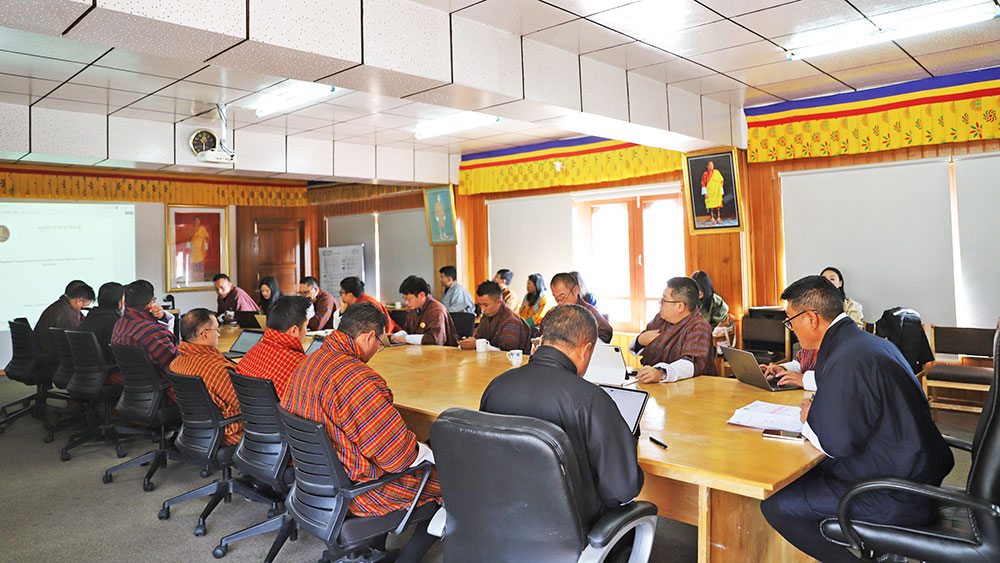…licensing regulations, access to finance and market, tax regulations, among others, were discussed
Thukten Zangpo
Private sector representatives have proposed to initiate a Better Business Council to make a conducive business environment during the review on business regulatory process consultative meeting at the Bhutan Chamber of Commerce and Industry (BCCI) in Thimphu yesterday.
The meeting was held in response to the executive order issued by the government to the Ministry of Industry, Commerce and Employment. The meeting’s objective is to submit recommendations to the ministry and then to the Cabinet by March 1.
To improve the business environment, a member expressed to initiate a Better Business Council where an equal representation from the private sector and relevant agencies can convene meetings once every month.
He added that the Economic Development Board which is chaired by the Prime Minister has only one representation from the private sector and the Board would not be able to tackle issues businesses face.
The government in 2014 stated to set up a Better Business Council, which was supposed to begin functioning as an autonomous agency in July 2014 was never operationalised.
A BCCI study found that the business sector lost an estimated Nu 125.81 billion from the economic down-turn caused by the Covid-19 pandemic.
Emphasising collaboration and synergy, the members highlighted three crucial domains for feedback to the government: general economic development policies, business regulatory procedures, and policymaking processes and consultations.
In the first domain, stakeholders can provide insights into prevailing economic policies such as the Economic Development Policy, Financial Incentives Act, Foreign Direct Investment (FDI) Policy, and Public Private Partnership Policy, among others.
Regarding the review of business regulatory processes, the private sector identified key areas, including licensing regulations, manpower or labour regulations, access to finance, market accessibility, tax regulations, and service delivery.
Over 100 existing policies, rules, and regulations were slated for comprehensive review and streamlining by respective sector associations.
One of the main issues highlighted at the meeting yesterday was on discrepancies in Mineral Development Policy regarding export royalties, where the policy states that the government should levy lower royalty for in-country value addition and use.
However, this has not been the case so far.
Another issue raised was on FDI policy which is impeding the investors’ attraction. The policy states that the purchase of capital goods in convertible currency where foreign investor’s share of equity is insufficient to meet the total requirement provided, the convertible currency amount should not exceed the local investor’s share of equity.
With the limited provision on convertible currency, the members expressed that the convertible currency is not adequate.
The members also expressed the need to rationalise the tax system by exempting tax on dividends since Bhutanese companies are faced with a higher tax burden with multiple tax systems especially in terms of dividends.
The businesses also proposed fast-tracking issuance of environmental clearance since there is delay in issue of clearances.
The recommendations also include the Bhutan Standard Bureau to ensure quality control of standards.
“This underscores the government’s commitment to bolstering the private sector,” BCCI’s President Tandy Wangchuk said. “We eagerly anticipate a transformative shift in regulatory mechanisms, crucial for the country’s economic advancement.”
Identifying existing bottlenecks and barriers, Khampa, project manager of the Voice for Green Change Partnership (V4GCP), affirmed that the commitment to deliver actionable recommendations for enhancing Bhutan’s better business ecosystem.
The consultation meeting was facilitated by the V4GCP project funded by the European Union and led by Handicrafts Association of Bhutan.


